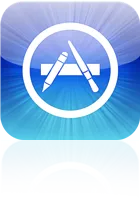
Today, Apple has finally come out with it. Apple will run a store called App Store to sell your iPhone software for you to the general masses, through either iTunes, iPhone or iPod touch. So, every developer in the universe is going ape nuts trying to download the new 2GB iPhone SDK and gearing up for the June launch to the public. What about the business side of things?
Let’s take a look at the basics:
70/30 -
- Developer gets:
- Hosting
- Credit Card Processing
- Access to millions of iPhone and iPod touch customers
- 70% of what they sell online.
- Paid out monthly
- The SDK, Tools and Documentation
- Apple gets:
- Subscription fees of $99 or $299
- A vast Inventory of Apps
- 30% of the sales
- Full Control over what apps are listed in its App Store
- plus…
What else?
Well if you have an iPod touch, and not iPhone, You need to pay a “nominal” fee to upgrade your device to be able to get the App Store on it.
So why does Apple want to restrict its App sales to the App Store you ask? The reason given is that it is a security risk. People who sign up for a developer account are supposedly safer since Apple has their personal information on file such as credit card numbers and phone and such. So if someone does write some malicious app that gets into 2 million iPhones and causes world hunger, we can all point to the right person and demand justice.
It might be unreasonable to conclude that if Apple is the single point of inspection, that no viruses will get through to its Store. Sure they will do a good job of inspecting all the stuff that comes in, but something somewhere will go wrong. And that is bound to happen.
Up until now Mac software has been distributed and sold by developers themselves. Not many Mac owners complain of a virus infection however. How is it that with a mobile device this changes?
One thing is for certain, Lots and Lots of money will be made on this by both Apple and top notch Cocoa programmers. Another side effect will be new coders coming to Cocoa Apple land and getting a taste of things in Cupertino. Xcode and other iPhone SDK development tools are Mac only tools, which could potentially boost Mac hardware sales as well. Oh and did I mention you need Leopard?
Finally, new apps mean new iPhone and iPod touch customers who up until now have not bothered switching to the land of apps and Apple. And more people hitting up the iTunes store looking for apps means more eyeballs that will most likely browse around the isles for other stuff like movie rentals and music downloads.
So we all are part of a major shift in technology usage and Apple is in the middle of it all as it builds its digital goods empire. This is probably the biggest shift we’ve seen since the personal computer was commercialized.
It makes perfect business sense, and seems like a winning business model for developers and Apple. I leave it up to you to determine how efficient and beneficial it is for consumers. My only question is then why did Apple wait over 9 months to release the SDK, and is waiting another 3 months to release it to the public? And what will Google Gears, Microsoft and Nokia do if anything to steal some of Steve’s spotlight?
A last thought: What happens if I buy an app for my iPhone and want to put it on my iPod touch? Will I have to pay for it again?